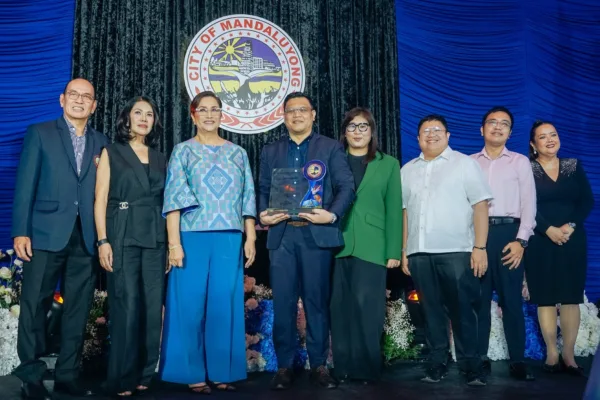For many young Filipinos, the realities of “adulting” often come crashing in with a single rejection — a denied loan, a failed credit card application, or even a phone plan that didn’t go through because of no credit history.
It’s a situation that Pia Arellano, President and CEO of CIBI Information Inc., the country’s pioneering credit bureau, says is becoming increasingly common — and one that underscores how essential financial visibility has become in today’s economy.
“Being financially responsible isn’t just about earning money anymore,” Arellano said in an interview. “It’s about being visible to the financial system that measures your trustworthiness. That visibility starts with your credit report.”
Understanding financial visibility

CIBI President & CEO Pia Arellano while delivering a speech at the Insurance Awards 2025
A credit report, Arellano explained, serves as a person’s financial footprint — a record of every account opened, bill paid, and obligation fulfilled. From this data, a credit score is generated, summarizing how consistently someone meets their financial commitments.
“In many ways, financial visibility has become the new measure of independence,” she said. “It’s what allows people to access banking products and services that can help them reach their goals — whether that’s applying for a loan, financing a car, or starting a business.”
Arellano noted that credit today extends far beyond lending. “It’s a measure of trust,” she said. “Financial institutions, employers, and even service providers often use credit records to gauge reliability and responsibility.”
This trust, she added, is what opens the door to a range of financial opportunities — from better loan terms and lower interest rates to smoother transactions with banks and service providers.
Younger generations leading the shift

CIBI, which maintains data on over 68 million individuals, has seen a noticeable change in how younger Filipinos view credit. Arellano shared that more people in their 20s are becoming proactive in building their financial profiles.
“At CIBI, we’re seeing more young adults paying bills on time, managing their credit cards wisely, and closely monitoring their spending habits,” she said. “Every responsible financial action creates a record — and that record is what banks and lenders look at when deciding who to trust.”
Arellano emphasized that this growing awareness represents a vital step toward greater financial inclusion in the Philippines. “Inclusion starts with visibility,” she said. “When people understand how their financial behavior is recorded and used, they gain control over their financial narrative.”
CIBI: Building credit the smart way

To help young Filipinos strengthen their financial standing, Arellano shared key practices that can improve creditworthiness and long-term access to banking services:
- Pay bills on time. Timely payments demonstrate consistency and reliability.
- Keep debt manageable. Using less than 30% of available credit shows financial discipline.
- Borrow purposefully. Only take on credit when necessary and use it responsibly.
- Review credit reports regularly. Monitoring your report helps correct errors and track your standing.
“Every responsible action, no matter how small, can open doors to more opportunities,” Arellano explained. “It can start with managing bills or smaller financial commitments well. When you perform responsibly in those, you build trust. And that trust can lead to access to bigger financial products over time.”
Collectively, they build your financial reputation — the foundation of your relationship with banks and other financial institutions. “That is how inclusion starts, by creating a progression of opportunities through responsible behavior,” the CIBI exec added.
Trust as the currency of financial inclusion

For Arellano, building credit goes beyond personal finance — it’s about strengthening the country’s financial ecosystem.
“When individuals build trust through responsible behavior, they don’t just gain access to financial products,” she said. “They contribute to a more inclusive system where opportunities are available to more Filipinos.”
CIBI, established in 1982 under the Central Bank of the Philippines and accredited by the Credit Information Corporation (CIC), continues to push for stronger data-driven lending and inclusive financial practices. The company works with international partners such as FICO, CTOS Malaysia, and GDS to integrate global best practices into the Philippine credit landscape.
“Ultimately, our goal at CIBI is to make sure every Filipino is seen — not just as a number, but as someone who can be trusted and empowered,” Arellano said.
Because in the world of banking and finance, visibility isn’t just about numbers — it’s about access, inclusion, and the freedom to make life’s bigger choices with confidence.








